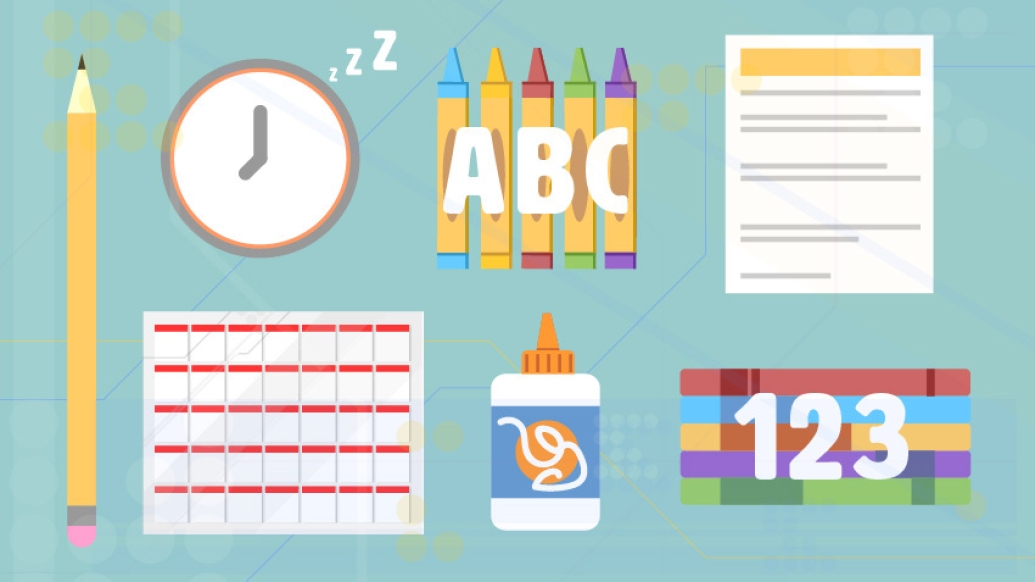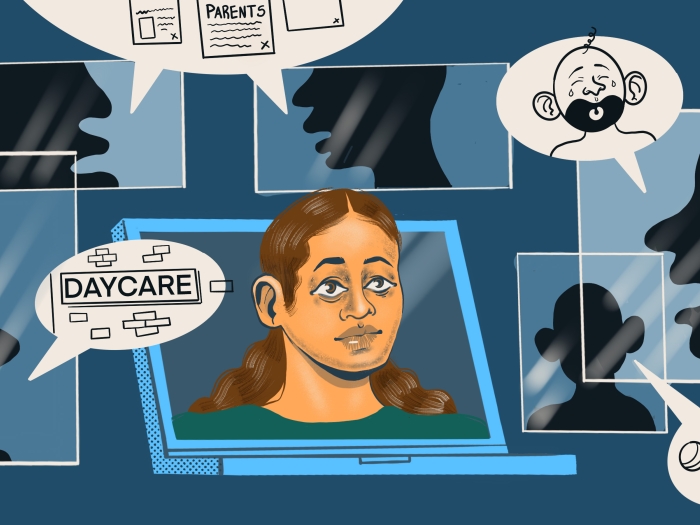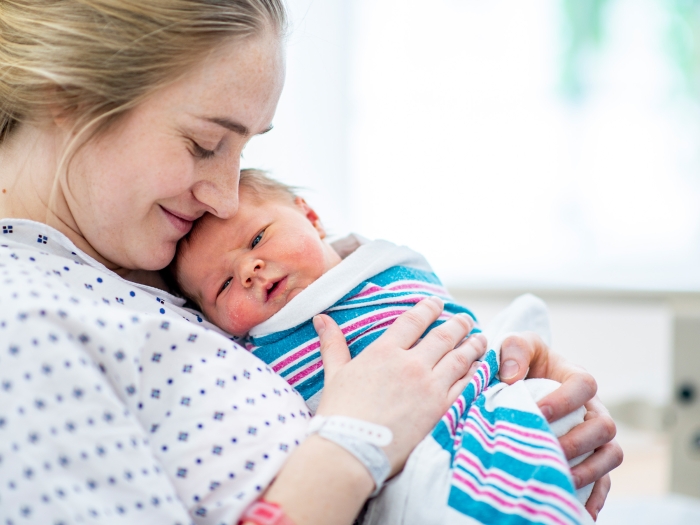A good start in kindergarten provides a foundation for years of education. Here's how families can prepare for the big day.
1:00 PM
Author |

For parents and children alike, the first day of kindergarten can be a big — and sometimes scary — event.
Not only does the milestone help foster new growth in social skills and self-reliance, but it can shape attitudes toward school attendance and the learning process for years to come.
"We know that if kids get off on the right foot, it does set the tone for how they expect school to go in the future," says Jessica Fealy, M.D., a pediatrician at C.S. Mott Children's Hospital.
Laying this groundwork should begin well before a child enters a classroom.
The preparatory steps that families can take together are simple.
SEE ALSO: 'Superhero' Brothers Bonded by Rare XMEN Disease
Fealy, herself a mother of three, offered some tips to ensure a smooth, successful start.
Tips to transition kids to kindergarten
Establish a routine: Talking about the concept of school and what it entails can begin months in advance, Fealy says. Older siblings, family members or friends could also share their experiences. Visit the grounds to check out the building, the classroom (see if an orientation session or open house is offered) and, of course, the playground.
Rehearse your walking route — or, if your child will be riding the bus, locate the bus stop and read a book together about riding the bus. Talk to your child about waiting safely at the bus stop and watching for cars when they cross the street.
Get more sleep: Being ready for school means being well rested. A few weeks before school starts, work on getting back on a "school-year bedtime" by going to bed 30 minutes earlier per week, Fealy says. Everyone ought to practice waking up as well as getting dressed and fed at the proper hour to avoid hiccups on the first day.
Sufficient sleep is even more vital once school starts. Fealy says her older child at first was "really tired" at night due to the bustle of kindergarten. She advises limiting other activities that week and being flexible to permit an earlier bedtime if needed.
Nurture key skills: The biggest thing parents can do to prepare their youngsters? "Reading together — it lays the groundwork for early literacy and later school success," says Fealy, who notes that children should be able to print their name, know some letters and numbers as well as phonetic sounds before starting kindergarten.
Kids can boost motor skills by learning to hold a crayon, pencil or glue stick (making collages by cutting magazines with safety scissors is a good way to practice, Fealy says). A child should also be able to recite their full name, address and phone number. She recommends that parents pick one cell phone number to focus on teaching their child.
SEE ALSO: Should Schools Start Later to Address Teen Sleep Deprivation?
Promote good citizenship: New benchmarks go beyond basic literacy and penmanship. "Kindergarten is so much about getting familiar with the school routine and learning how to be a good classmate," Fealy says.
That's why it's important to instill the values of sharing, waiting in line, taking turns and hand-washing, among other things, as early as possible — via play dates, Little League or pre-K, for example.
Embrace positivity: Although separation anxiety is natural for both parties, the split needn't be traumatic. Parents, Fealy says, can diffuse the unease by staying calm themselves; kids often sense those mixed emotions and will respond accordingly. Helping pick out school supplies or a special outfit to wear also could be a motivator.
And the enthusiasm should continue all year: Ask your kids to find one good thing to share about their day each night at dinner, Fealy suggests. "School should be exciting and fun."

Explore a variety of healthcare news & stories by visiting the Health Lab home page for more articles.

Department of Communication at Michigan Medicine
Want top health & research news weekly? Sign up for Health Lab’s newsletters today!





